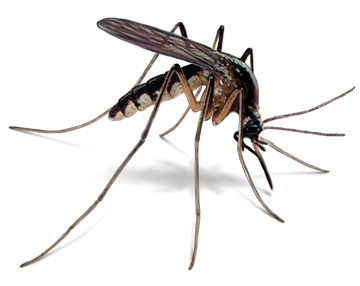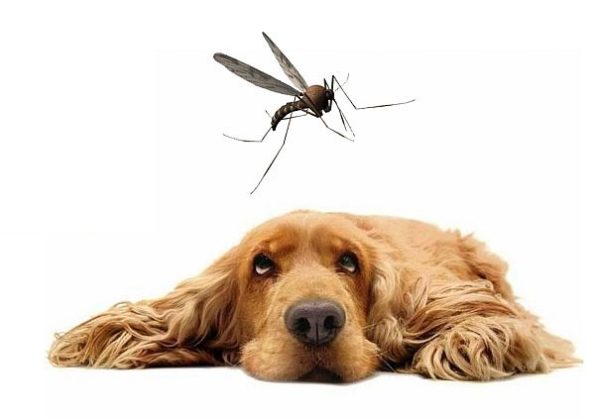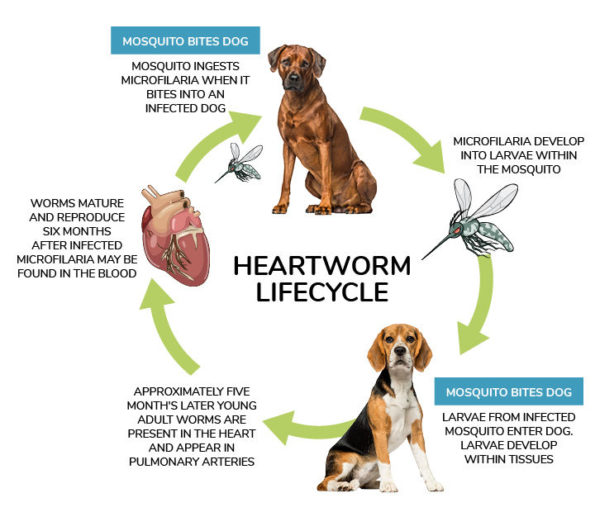
Heartworm is a parasitic worm that can infect your pet through a mosquito bite. Heartworm is more likely to affect dogs than cats, but it can affect both species.
The heartworm lifecycle requires an intermediate host, the mosquito, to transmit larvae to continue its cycle.
The adult heartworm releases microfilaria within an infected host which travels through the bloodstream. Once a mosquito feeds on this host, it collects the microfilaria which can then be transmitted to another host through its next feed. The microfilaria then lives within the tissues for 5-6 months until it then travels to the heart and matures into the adult stage and continuing the cycle between hosts.
Heartworm in cats is a little different than in dogs. Heartworms in cats do not live as long or grow as long, and fewer of them mature into adults. Larvae is not as common in the blood stream of cats and is less likely to spread.
It is not known to be spread by direct contact of infected animals. It will always require the intermediate host.
The way it affects individuals is related to how many worms are living inside the animal (the worm burden), how long the host has been infected, and how the body has been responding to the presence of the parasite.
 Initially, it is tough to tell that anything is wrong with your pet at all. Heartworm is a slow onset disease, so months or even years may pass before the signs become obvious. When symptoms do appear, your pet could have a large heartworm burden. An animal with a worm burden will see the worms interfering with the movement of the heart valves, creating turbulence in the blood flow, and causing the blood vessels that lead to the lungs to become “blocked” with worms. This puts the heart under immense strain, where it can become enlarged and exhausted.
Initially, it is tough to tell that anything is wrong with your pet at all. Heartworm is a slow onset disease, so months or even years may pass before the signs become obvious. When symptoms do appear, your pet could have a large heartworm burden. An animal with a worm burden will see the worms interfering with the movement of the heart valves, creating turbulence in the blood flow, and causing the blood vessels that lead to the lungs to become “blocked” with worms. This puts the heart under immense strain, where it can become enlarged and exhausted.
Early signs could be shortness of breath, loss of stamina, or a nagging, dry cough. As the disease progresses, breathing becomes more difficult, and in severe cases the abdomen may swell with fluid. Your dog could become lethargic and lose weight and their appetite. These symptoms are often subtle and hard to detect, so prevention is the best option.
Prevention is the best cure, and the earlier you are treating your pet, the less likely heartworm is able to develop. Treatment starts from an early age and spans throughout the lifetime of your pet.
Preventative treatments are available in a few different forms. Tablets or flavoured tablets are available. For fussy dogs that are hard to feed a tablet, liquid spot-on treatments are available or even once a year injections can be administered by your veterinarian. Have a discussion with our staff to choose what suits your routine best.



